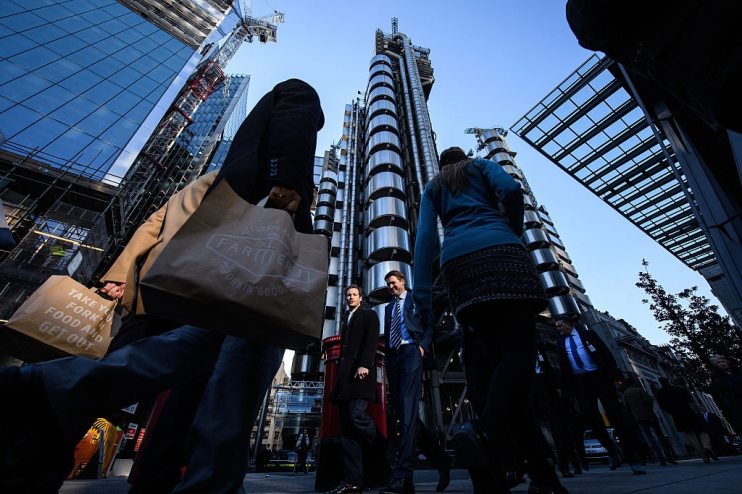Londoners have the second-lowest perception of their wealth in England

Despite having the highest average total wealth in the country, London dwellers’ perceptions of their financial wellbeing are particularly poor, according to this year’s UK financial health index by wealth manager St James’s Place.
Data from the index released today, ahead of The Bank of England’s announcement of its next move on interest rates later this week, shows average total wealth in London outstrips all the UK’s eleven other regions at £1m – substantially more than the national average of £382,208.
But the capital ranks as the second-lowest when it comes to perceived financial wellbeing in England, just behind the North East, and ranks fourth when it comes to the whole of the UK, behind Northern Ireland and Wales too.
The wealth perception metric is made up of four key indicators in the index: satisfaction with wealth; share of households up-to-date with all bills; ability to handle a major unexpected bill/expense; share of households who feel that financial constraints impact quality of life.
In fact, Londoners’ financial wellbeing was dragged down by two indicators in particular – being up to date with all bills and financial constraints impacting quality of life – ranking the lowest in the country for both.
It’s a result that might not come as too much of a surprise to London dwellers who rent in the city, and find themselves walking the tight rope between enjoying what the city has to offer and being able to meet their landlord’s deadlines each month.
And it starts to make even more sense when the disparity between the average total wealth in London and the rest of the country is broken down.
Property prices account for over half of Londoners’ average total wealth – so homeowners are benefitting from that £1m average much more than renters.
But living in a global financial centre seems to rub off on Londoners, who are comparatively savvy when it comes to building their wealth.
While a third of respondents across the whole of the UK attributed any increase in wealth over the last ten years to rising property prices, almost two thirds (60 per cent) of Londoners said that investment performance – across traditional shares, alternative investments and even cryptocurrency – was the key driver behind their increased wealth.
When it comes to investing, the next closest region is the West Midlands, where only one third (33 per cent) of respondents reported the same.
Cost of living by far ranks as the main barrier to wealth across the whole of the UK, with more than two-fifths of respondents citing it as a main barrier – not much of a surprise when the latest figures reveal the cost of living rose by 4.2 per cent in October, its highest rate in almost ten years.
But breaking this down into regions, London performed much better than the rest of the UK, with close to a third citing cost of living as a significant barrier to wealth, as compared to slightly more than a half in Northern Ireland.
London also stood out when it comes to the pandemic’s impact on wealth, with 45 per cent of the capital’s dwellers reporting that the pandemic had a positive impact on wealth rather than negative – the only region where positive outweighed negative.
“Not only is wealth unevenly spread around the UK, but in some areas, there is a clear mismatch between the reality of people’s wealth and their own perception of being wealthy, meaning that people across all regions are experiencing poor financial health in one way or another,” said Alex Loydon, director of consultancy at St. James’s Place.
“With the cost of living rising and greater strains on our money, it’s more important than ever to engage with finances and to have a plan in place,” she added.
It comes as the International Monetary Fund (IMF) yesterday fired a warning shot at the Bank of England, urging the UK’s central bank to hike interest rates now to tame runaway inflation.
The world’s economic watchdog told the Bank it needs to “withdraw the exceptional support provided during” the Covid-19 crisis or risk facing spiralling inflation.
In its annual check up on the UK economy, the IMF predicted inflation will hit a three-decade high of 5.5 per cent next spring, ahead of the release of official inflation estimates later today.
City economists expect the rate to climb to around five per cent, scaling further above the Bank’s two per cent.